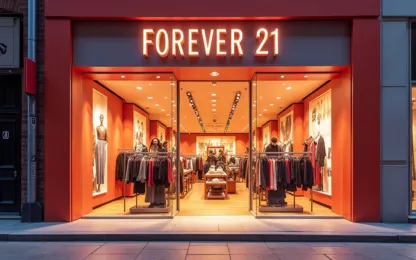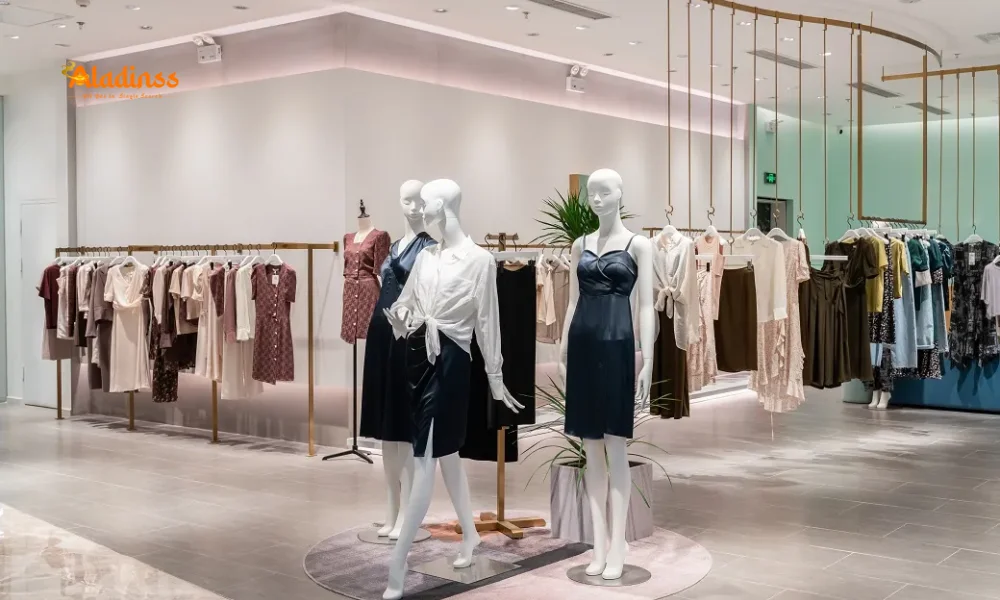Forever 21’s China, North America Relaunch

Forever 21 Plans Bold Relaunch in China and North America with New Partners
Fast-fashion giant Forever 21 is staging a comeback in two of the world’s largest markets—China and North America—following a challenging period marked by bankruptcies and operational setbacks. Owned by Authentic Brands Group, the retailer is partnering with new operators to revitalize its presence, with a focus on localized strategies and engaging younger consumers. In China, Forever 21 is making its fourth attempt to crack the market, collaborating with Chengdi, a brand operator partly owned by e-commerce platform Vipshop Holdings. Meanwhile, plans for a North American relaunch are underway, with a new partner to be announced soon. This article explores Forever 21’s latest developments, its strategic partnerships, and the challenges it faces in a competitive retail landscape as of September 2, 2025.

Forever 21’s Fourth Attempt in China
Forever 21 has had a turbulent history in China, having entered and exited the market three times since 2008. Its most recent attempt in 2022 saw the opening of brick-and-mortar stores outside major fashion hubs, but the business quietly wound down by late 2024 due to challenges in adapting to local trends and e-commerce dominance. However, the brand is now back with renewed energy, as evidenced by its vibrant marketing campaigns in major Chinese cities. Bright yellow advertisements, a nod to Forever 21’s signature color, have been spotted across Shanghai’s metro system, and promotional events at music festivals are generating buzz among young consumers.
This time, Forever 21 is partnering with Chengdi, a brand operator backed by Vipshop Holdings, a leading Chinese e-commerce platform. At a press event in Shanghai on August 29, 2025, Chengdi announced its focus on localizing operations to resonate with China’s Gen Z demographic. The strategy includes tailoring products to local tastes, leveraging e-commerce channels, and planning to open physical stores in 2026. This localized approach aims to address past failures by aligning with China’s fast-evolving retail landscape, where digital platforms and youth culture play a pivotal role.
North American Relaunch: A New Chapter
In North America, Forever 21 is gearing up for a significant relaunch following its second bankruptcy filing in March 2025. The retailer, once a staple in American malls, cited declining foot traffic and fierce online competition from brands like Shein and Temu as reasons for winding down its domestic operations. However, Authentic Brands Group remains optimistic about the brand’s potential, announcing plans to partner with a new operator to revive its presence in the U.S. and Canada. Further details on this partnership are expected soon, signaling a strategic pivot to reclaim market share.
The North American relaunch will likely focus on a hybrid model, blending physical retail with a robust e-commerce strategy to compete with fast-fashion giants. By leveraging data-driven insights and trend-focused designs, Forever 21 aims to reconnect with its core audience of young, fashion-conscious consumers. The brand’s iconic status, built through its rapid expansion in the 2000s, provides a foundation for this revival, but success will hinge on adapting to modern retail dynamics.
Authentic Brands’ Vision for Forever 21
Authentic Brands Group, which acquired Forever 21 out of bankruptcy in 2020, has faced scrutiny over the purchase. CEO Jamie Salter once called it “probably the biggest mistake I made” during a 2024 presentation, citing the brand’s struggles with profitability and market relevance. However, a spokesperson clarified on August 29, 2025, that Salter remains confident in Forever 21’s potential, stating, “He has always believed that having Forever 21 as part of Authentic Brands Group is a good idea, and he still believes that.” This optimism underpins the company’s aggressive relaunch strategy in both China and North America.
Authentic Brands is focusing on China and the U.S. as its near-term priorities, aiming to stabilize the brand before exploring further global expansion. The company’s expertise in managing iconic brands like Reebok and Brooks Brothers positions it well to navigate Forever 21’s challenges. By forging strategic partnerships and investing in localized marketing, Authentic Brands is betting on a revitalized Forever 21 to reclaim its status as a fast-fashion leader.

Challenges in a Competitive Fast-Fashion Landscape
Forever 21’s relaunch comes at a time when the fast-fashion industry is more competitive than ever. Global rivals like Shein and Temu have disrupted the market with ultra-low prices and rapid trend cycles, appealing to budget-conscious consumers. Additionally, declining mall traffic in North America has shifted retail focus to online platforms, where Forever 21 must compete with established players like Zara and H&M. In China, the dominance of e-commerce giants like Tmall and JD.com, coupled with local brands, poses further challenges.
To succeed, Forever 21 must differentiate itself through unique designs, sustainable practices, and a strong digital presence. The partnership with Chengdi in China, with its access to Vipshop’s e-commerce infrastructure, provides a competitive edge. Similarly, the upcoming North American partnership will need to prioritize omnichannel strategies, blending physical stores with seamless online shopping experiences to capture a diverse customer base.
Marketing Strategies and Consumer Engagement
Forever 21’s current marketing efforts in China demonstrate a shift toward immersive, youth-focused campaigns. The brand’s bright yellow advertisements in Shanghai’s metro and activations at music festivals signal a departure from traditional retail strategies. By tapping into cultural touchpoints, Forever 21 aims to resonate with China’s Gen Z, a demographic known for its trend-savvy and digitally connected nature. These efforts reflect a broader trend in retail, where experiential marketing and social media engagement are critical for brand visibility.
In North America, similar strategies could help Forever 21 regain relevance. Collaborations with influencers, pop-up events, and exclusive online drops could generate buzz and attract younger shoppers. Additionally, emphasizing affordability without compromising style will be key to competing with low-cost competitors. The brand’s history of offering trend-driven clothing at accessible prices remains a strength, but it must innovate to stay ahead in a crowded market.
Forever 21’s bold relaunch plans signal a critical juncture for the brand. With strategic partnerships and a focus on localization, the retailer is poised to reclaim its place in the global fast-fashion market, but only time will tell if it can overcome its historical challenges and thrive in today’s dynamic retail environment.
Comment / Reply From
No comments yet. Be the first to comment!






